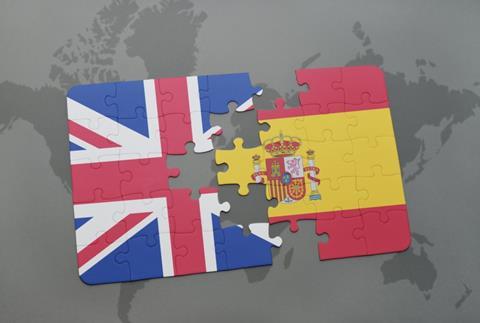
For several months after Britain’s momentous EU referendum result, nothing seemed to happen. Everyone sat and waited, insisting that nothing was known and nothing could be done. Perhaps, deep down, some people even hoped it would just blow over and Brexit would never materialise.
The tone of the rhetoric, however, has notably changed in recent weeks. As Theresa May talks of ‘hard’ Brexit, EU leaders are entrenching their position that Britain will receive no gimmes. All the while managers across industry become increasingly twitchy.
The Fresh Produce Consortium last week produced a briefing document outlining the conditions that would lead to a healthy and sustainable fresh produce industry post-Brexit, saying the government needs to focus on the issues of exchange rates, labour, trade, regulation and funding.
But it’s not just in Britain where companies are fretting over the future – Spanish suppliers have as much on the line when it comes to ensuring a seamless continuation of the relationship. Just consider the facts: Britain imports over £2 billion of products from Spain every year, with citrus (15 per cent), tomatoes (8.5 per cent), brassicas (7.7 per cent), stonefruit (7.5 per cent) and lettuce (seven per cent) chief among them [OEC data]. With around a third of all the vegetables and 20 per cent of all fruit sold in this country coming from Spain [Defra], Britain’s fresh produce aisles would look very bare without its major supplier of non-domestic fruit and vegetables.
So far officials in Spain are calm, insisting that conversations will take place at the appropriate time and that there is a will on both sides to get a deal over the line. Speaking at Fruit Attraction in Madrid this month, Britain’s deputy ambassador to Spain, Tim Hemmings, told FPJ that the reaction has been “pragmatic”. “Of course we need the detailed negotiations to start, and I think that people in Spain would like to take that forward,” he said. “We’ve prepared the ground well and we’re ready with our Spanish partners to have a detailed negotiation once we have a starting position and the Spanish have set out their priorities.”
One additional complication is the fact that Spain does not currently have a permanent government, so the basic act of starting detailed conversations is more problematic than it should be. Nevertheless Hemmings rejects the suggestion that Spanish eyes might wander to other markets rather than securing the relationship with Britain.
Perhaps you would expect a diplomat to say that. For the industry though, concerns remain. Jorge Brotons, president of Spanish exporter federation Fepex, says: “Everyone knows how worried we are about Brexit. The exchange rate with the pound is affecting all the growers, and all the deals we have with customers in the UK are in a difficult moment. We are trying to find a solution but everyone has to understand it’s a big problem for us to accept that the prices we agreed before Brexit has had a devaluation of 15 per cent.”
Short term pain then, but what about the long-term outlook? “Brexit is a reality so we have to accept it. Let’s hope we can find a solution for everything,” Brotons adds.
Everybody on both sides will be hoping that is the case.






No comments yet